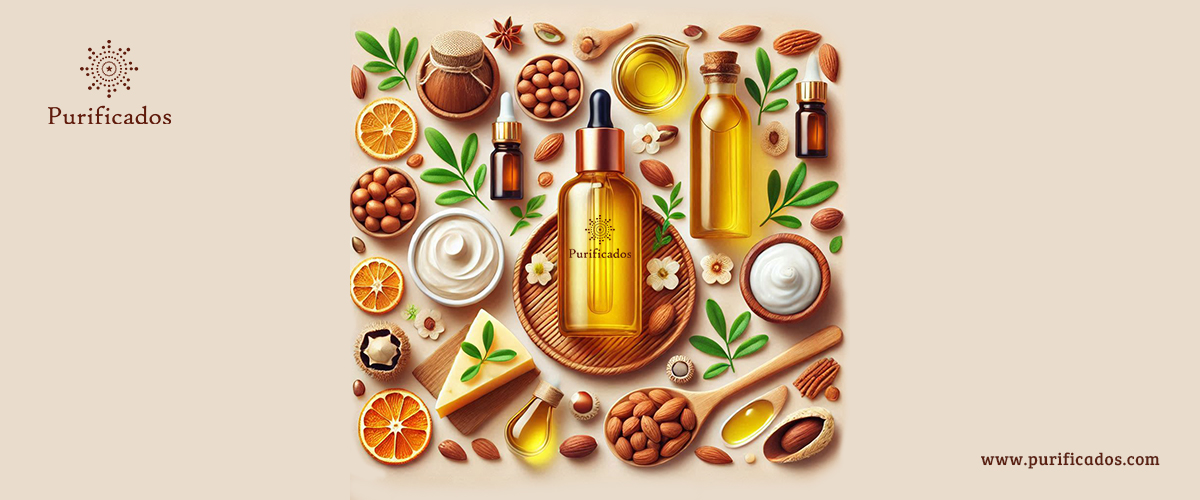
Argan oil, often referred to as “liquid gold,” has become one of the most versatile and sought-after natural products worldwide. Its unique composition of essential fatty acids, vitamin E, and antioxidants makes it a powerhouse for both cosmetic and culinary applications. Whether it’s enhancing skin and hair health or adding a rich, nutty flavor to dishes, this oil offers a range of benefits that extend beyond traditional uses of Argan Oil in Morocco.
Cosmetic Uses of Argan Oil
Argan oil’s cosmetic applications are extensive, thanks to its deeply nourishing and restorative properties. Here’s how it benefits various aspects of beauty care:
- 1. Skin Moisturizer: Argan oil is an excellent natural moisturizer due to its high concentration of vitamin E and essential fatty acids. It is lightweight, non-greasy, and easily absorbed into the skin, making it ideal for all skin types, including sensitive and oily skin. Regular application helps hydrate and soften the skin, reducing dryness and improving elasticity.
- 2. Anti-Aging Treatment: The antioxidant properties of argan oil help protect the skin from environmental damage and oxidative stress, both of which contribute to premature aging. By neutralizing free radicals, argan oil helps reduce the appearance of fine lines, wrinkles, and age spots. Its ability to promote collagen production also helps maintain a youthful, firm complexion.
- 3. Acne Treatment: Contrary to what some might think, argan oil is beneficial for acne-prone skin. Its anti-inflammatory properties help reduce redness and irritation associated with acne, while its non-comedogenic nature ensures that it won’t clog pores. The linoleic acid in argan oil can help balance sebum production, reducing breakouts and promoting clearer skin.
- 4. Hair Conditioner and Repair Treatment: Argan oil is a favorite in hair care products because of its ability to deeply nourish and repair damaged hair. It helps smooth frizz, restore shine, and strengthen hair strands, making it particularly beneficial for dry, brittle, or chemically treated hair. Applied as a leave-in conditioner, it protects the hair from heat styling and environmental damage while promoting softness and manageability.
- 5. Scalp Health: Argan oil’s moisturizing and anti-inflammatory properties extend to the scalp as well. It can help alleviate dry, flaky scalp conditions and reduce dandruff. Massaging a few drops of argan oil into the scalp stimulates circulation and nourishes the hair follicles, promoting healthy hair growth.
- 6. Nail and Cuticle Care: Argan oil is also effective in strengthening weak or brittle nails and moisturizing dry cuticles. A few drops massaged into the nails and cuticles regularly can help prevent breakage, splitting, and promote healthier, smoother nails.
Culinary Uses of Argan Oil
In addition to its beauty benefits, argan oil is prized for its culinary applications. The culinary-grade oil is made from lightly roasted argan kernels, giving it a rich, nutty flavor that enhances various dishes. Here are some of its culinary uses:
- 1. Salad Dressings: Argan oil is a flavorful addition to salad dressings, adding depth and richness to a variety of green, grain, or vegetable salads. Its nutty flavor pairs well with lemon juice, vinegar, or honey, making it a versatile base for dressings that elevate simple salads to gourmet status.
- 2. Dipping Sauces: In Moroccan cuisine, argan oil is often used as a dipping sauce for bread, similar to how olive oil is enjoyed in Mediterranean cuisine. It can be mixed with a bit of honey for a sweet treat or blended with spices for a savory dip.
- 3. Drizzling Over Grains and Vegetables: A drizzle of argan oil over cooked grains like couscous, quinoa, or rice adds a luxurious, earthy flavor. It can also be used to finish roasted or steamed vegetables, enhancing their natural taste while providing a rich source of healthy fats.
- 4. Flavor Enhancer for Soups and Stews: Argan oil can be added to soups and stews as a finishing touch, infusing the dish with a subtle, nutty flavor. It is typically added just before serving to preserve its delicate taste and nutritional value.
- 5. Traditional Moroccan Amlou: Amlou is a traditional Moroccan spread made from argan oil, ground almonds, and honey. This creamy, sweet paste is often served with bread for breakfast or as a snack. Amlou is not only delicious but also packed with healthy fats, making it a nutritious addition to the diet.
Nutritional and Health Benefits of Culinary Argan Oil
Culinary argan oil offers several health benefits when consumed as part of a balanced diet:
- Rich in Healthy Fats: The oil is primarily composed of monounsaturated and polyunsaturated fatty acids, which are beneficial for heart health. These healthy fats help lower LDL cholesterol levels and reduce the risk of cardiovascular diseases.
- High in Antioxidants: Argan oil is a good source of vitamin E, a potent antioxidant that helps protect cells from oxidative damage. This can contribute to reduced inflammation and a lower risk of chronic diseases.
- Anti-Inflammatory Properties: The fatty acids and antioxidants in argan oil have anti-inflammatory effects, which can help reduce inflammation in the body, potentially benefiting conditions like arthritis and metabolic syndrome.
- Supports Digestive Health: Traditionally, argan oil has been used to promote digestive health. It can help soothe the digestive tract, improve digestion, and support a healthy gut.
Argan oil’s versatility makes it a valuable addition to both the cosmetic and culinary worlds. Whether used to nourish the skin and hair or to enhance dishes with its rich, nutty flavor, this “liquid gold” offers a wide range of benefits. Its unique combination of essential fatty acids, antioxidants, and vitamins makes it a powerful tool for improving health and wellness, both inside and out. Whether incorporated into daily beauty routines or culinary creations, argan oil continues to be a staple in holistic health practices around the world.
